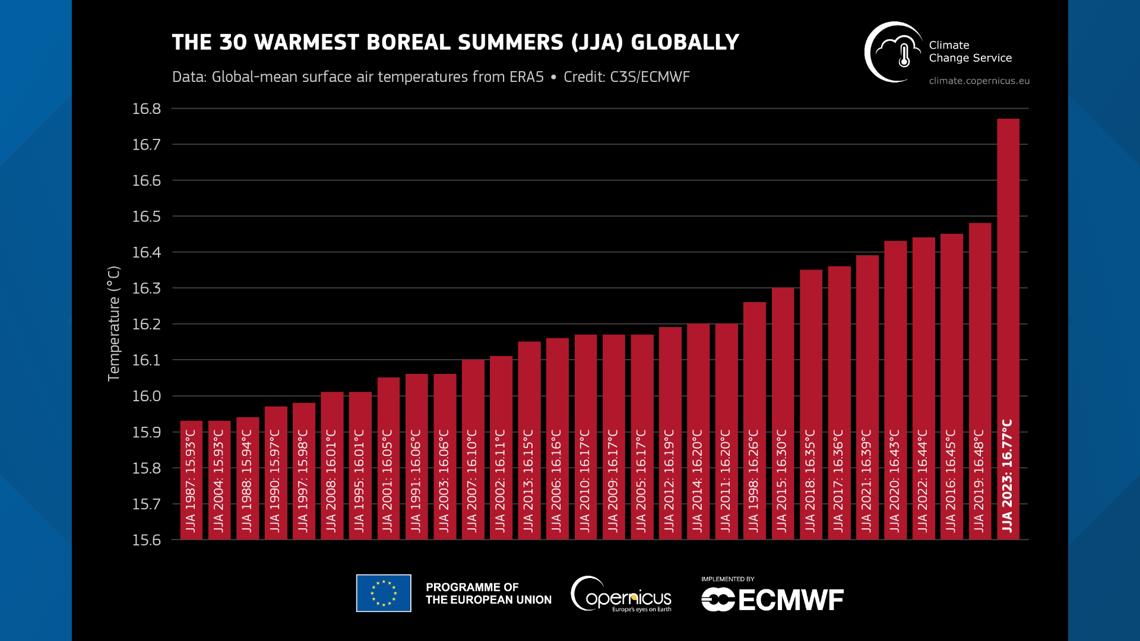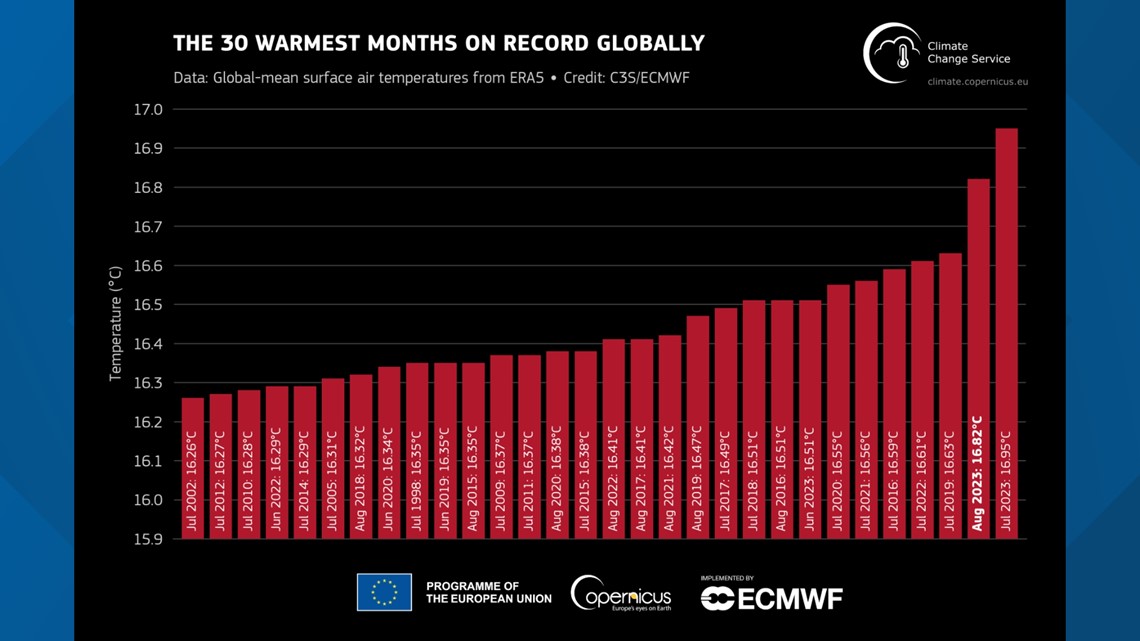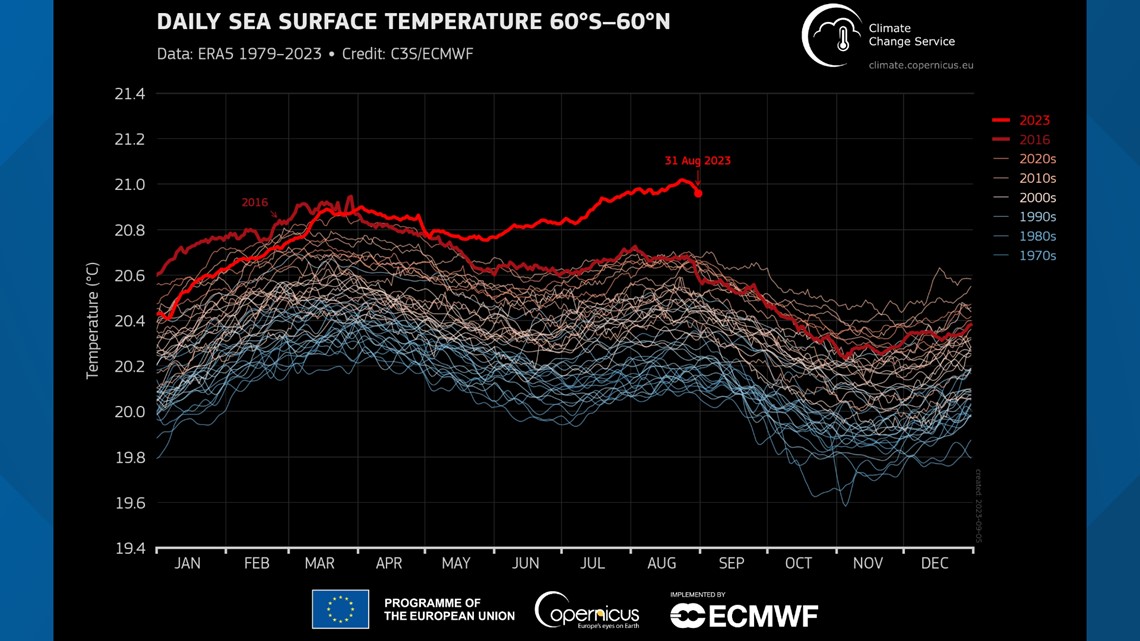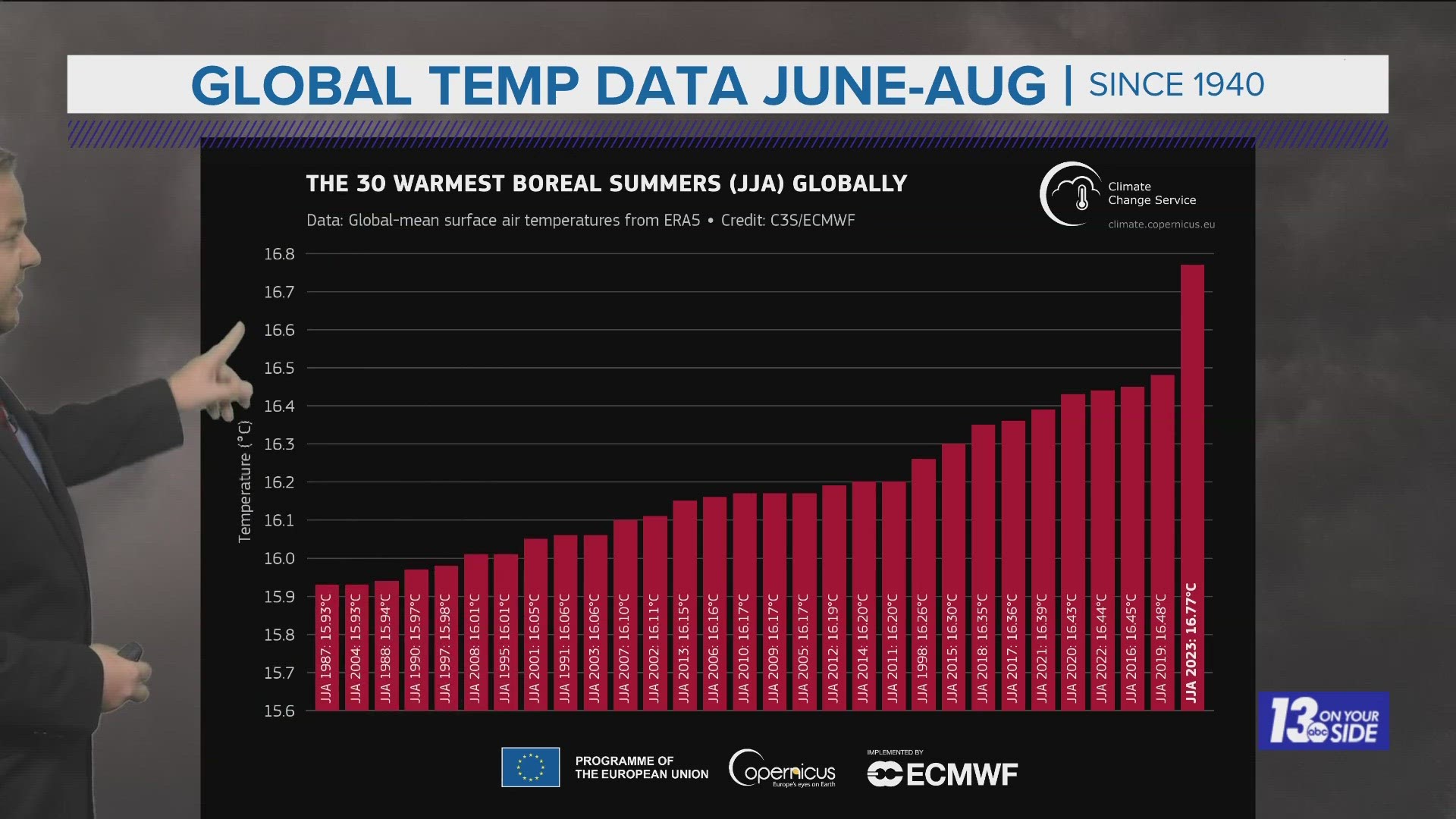BONN, Germany — It has been no secret that the heat has been pretty extreme at times this year around the country and throughout the globe. Backing that up, new data from the Copernicus Climate Change Service, which is funded by the European Union, shows that meteorological summer (June through August) of this year was the hottest such period on record, with data going back to 1940.
June through August 2023 clocked in at 16.77 degrees Celsius for average surface temperatures globally. This was 0.66 degrees above normal levels, and 0.29 degrees above the previous record summer from 2019.
Data for this result was collected via satellites, ships, aircraft and weather stations globally.


On top of this, the month of August was recorded globally to be the warmest August on record going back to 1940, along with being the second hottest month of all time. This comes directly after the new hottest month on record, which was recorded in July of 2023.


What's even more concerning is that we have been in a period of unprecedentedly warm sea surface temperatures for most of this year. Temperatures have been above the previous record high, set in March of 2016, since July 31st of this year.
What this means is that more energy is available in the oceans to fuel potentially devastating tropical storms, hurricanes and typhoons. As we enter peak tropical season, this will start to become an increasing concern for us here in the United States.


In a statement released through the World Meteorological Organization website, Carlo Buontempo, Director of the Copernicus Climate Change Service, explained.
"Eight months into 2023, so far we are experiencing the second warmest year to date, only fractionally cooler than 2016, and August was estimated to be around 1.5°C warmer than pre-industrial levels. What we are observing, not only new extremes but the persistence of these record-breaking conditions, and the impacts these have on both people and planet, are a clear consequence of the warming of the climate system," he wrote.
If these patterns continue, they will have the potential for making storms across the globe more intense and bouts of extreme hot and cold temperatures more frequent and extreme. Without more being done to fight climate change, we will likely continue to see impacts such as these in the years to come.
-- Meteorologist Michael Behrens
Follow me on social media! Facebook Meteorologist Michael Behrens, X/Twitter @MikeBehrensWX, and Instagram/Threads @MikeBehrensWX.
Email me at: MBehrens@13OnYourSide.com
Have a 30-second video or still photo to share? We'd love to share it with everyone! Email your image to Weather@13OnYourSide.com or post it to our 13OnYourSide Facebook Page.
►Make it easy to keep up to date with more stories like this. Download the 13 ON YOUR SIDE app now.
Have a news tip? Email news@13onyourside.com, visit our Facebook page or X/Twitter. Subscribe to our YouTube channel.

